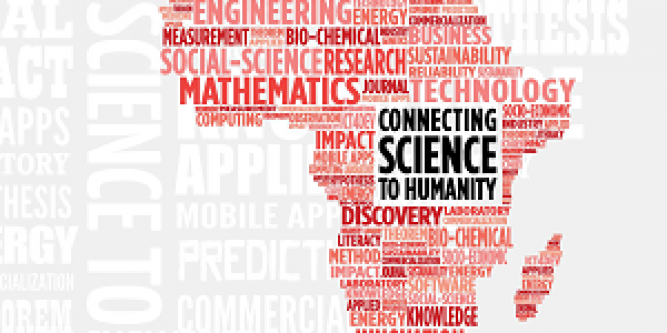More than 800 scientific and industry thought-leaders, political leaders and young scientists came together from March 8-10 in Dakar, Senegal, to chart a new course for development in Africa through science, technology and innovation.
The Next Einstein Forum (NEF)’s inaugural Global Gathering covering all of the STEM disciplines was the first of its kind in Africa. It was convened by NEF, a 2013 joint initiative of the African Institute for Mathematical Sciences (AIMS) and German-based Robert Bosch Stiftung, one of Europe’s leading foundations promoting natural and social sciences.
“This is a transformational moment for Africa,” said Thierry Zomahoun, NEF chairperson and AIMS president and CEO. “Our scientists have showed us and the world that given the opportunity, they are able to do extraordinary things. Taking our African scientists out of the shadows and giving them the exposure on a global level, we’re creating a youth-driven pan-African scientific community that must be sustained and expanded starting with our NEF Fellows and Ambassadors.”
The gathering’s ultimate goal was to drive continent-wide collaboration and commitment to building a strong STEM ecosystem in Africa, as well as to showcase the continent’s pool of rising and established STEM talent. The three days saw scientific and solution-driven sessions, spotlights of the NEF’s 15 Fellows, and the NEF Global Challenge of Invention to Innovation competition, which was won by Moses Bangura, founder of Rokel Delivery Services, an African-led start-up that leverages advances in drone technology and network mapping to deliver life-saving health care solutions.
Bangura noted that his company is trying to raise the funds to develop an advanced prototype for testing, install ground stations, run pilot studies in at least two African countries, and participate in the development of legal infrastructures in the use of drones for service delivery in Africa. “This we believe will be the first of its kind in the world. In the end, RDS will ensure that health care products are able to reach people in emergencies and those who are in the furthest regions from connected roads,” he said.
Forum participants discussed the need for regional collaboration and investment in basic and applied sciences.
“We’ve set an important precedent here in Dakar that Africa can indeed become a global scientific hub, but only if we create the sustainable funding and support infrastructure critical to building scientific capital,” Mary Teuw Niane, Senegal’s minister of Higher Education and Research, commented at a panel on developing a national science strategy and taking concrete steps to move from policy to implementation. “Where there are many challenges, science provides endless solutions, both now and in the future. We must seize the opportunity by leveraging buy-in and best-practice results from Africa and the world.”
The NEF announced the following initiatives in the context of forging strategic partnerships, securing increased investment, developing research capacity, encouraging education, empowering young African scientists, and promoting diversity and women in STEM.
* AIMS and Germany’s Federal Ministry of Education and Research signed a memorandum of understanding establishing five research chairs to strengthen research and support scientific exchange. The first chair has been installed at AIMS Senegal with NEF Fellow Moustapha Fall, with additional chairs slated for South Africa, Ghana, Cameroon and Tanzania.
* Neil Turok, AIMS founder and chairman and current director of Perimeter Institute for Theoretical Physics, and the NEF’s Zomahoun signed a letter of intent with the government of Nigeria to open an AIMS center in Nigeria.
* The NEF launched the AIMS Women in STEM Initiative, a collaborative industry effort supported by the African Union Commission; the Government of Senegal; Human Sciences Research Council, South Africa; Forum for African Women Educationalists; Johnson & Johnson, International Development Research Center; and others.
* IBM Research and the NEF launched a visiting scientist program to link brilliant scientists from Africa to global opportunities for research and mentorship. Five NEF Fellows will become visiting IBM scientists at IBM’s global network of research labs in countries such as Kenya, the United States, Switzerland, China, India, Brazil, Israel, and Australia. The program is designed to give a boost to Africa’s most promising young scientists and help set the pace and direction for the continent’s cutting edge scientific research.
Ingrid Wünning Tschol, senior vice president for strategy at Robert Bosch Stiftung, summed up the historic three-day event: “This week, we’ve gotten a sneak preview of the future of an Africa that is young and rapidly transforming. Science is key to this evolution and NEF is a critical platform to realize this potential. We all agree that a strong scientific community on this continent will also revolutionize the global scientific community.”
The next NEF Global Gathering will be held in 2018 in Kigali, Rwanda, which is now home to the AIMS headquarters; Quantum Leap Africa, the continent’s Africa’s first quantum research center; and the NEF secretariat.













